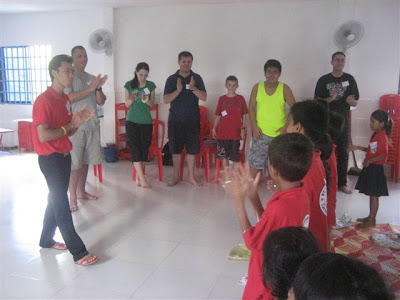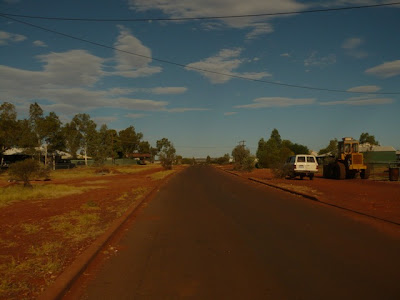
Sunday, November 23, 2008
Monday, October 6, 2008
The girl with an apple - remarkable story
|
Make the switch to the world's best email. Get Yahoo!7 Mail.
Tuesday, August 19, 2008
Cambodia Outreach 2008
Samantha works with various ministries including Tarsha's Legacy Centre (TLC), Fellowship of Hope Church and Transform Cambodia.
During the outreach the team broke up into three groups, two of them working at the TLC. One of these groups focussed on the children ministry teaching English and Bible, as well as building relationships.
The other ministered to the adults and parents of the children.
The third group worked at an orphanage, Centre of Peace, with two other Australians, and had a similar children's ministry.













Thursday, August 14, 2008
Proud new parents of little James van Jaarsveldt
Russia 2008 Mission Trip - feedback




Mission Sunday Presentation by Riki Deale
Tuesday, May 27, 2008
Saturday, March 29, 2008
TV and our very young children
There are some lovely products on the market to entertain our
babies and young children! How useful when we're trying to cook
dinner or supervise older kids' homework or music practice- or
stop them from waking the others!
But a new growth industry, TV programs for babies, is creating
some concern. In 1970 children on average began watching TV
at age 4 years, but today that seems to be more like 4 months!
We've discovered that 4 month olds see moving images and stop
crying. They also enjoy the colours and shapes and soothing
music. But the brain of the child under 2 is growing rapidly and
recent research in the US indicates that fast moving TV images,
rather than being harmless entertainers, actually affect the brain
so that by age 7 years, these children have a higher incidence of
attention deficit than those who saw no TV. There seems to be a
link with fast moving images getting children's brains trained, so
that later they are less able to concentrate on activities as needed.
And the more TV infants watch, the greater the effect.
It was also found that activities such as playing with blocks adds
to language development more than TV watching does. The
reason may have to do with the interaction between the adult and
the child compared with watching a screen. As we show our
children what blocks can do, we teach language skills,
demonstrate creativity, the force of gravity and engineering
concepts- sorting into shapes and sizes- all through play and
positive interaction. As children continue to experiment on their
own they practise the concepts they have just learnt.
It has also been noted that in recent years TV is usually no longer
a family activity as it was when there was only one TV in the
house - families had to learn to negotiate, parents provided
guidance and there was a shared experience. Of course we can
still do these things. It's a matter of choice!
Produced by Helen Vanderbom, Children's Work Coordinator
CRCA: childrens@crca.org.au
Saturday, February 16, 2008
The "Sorry Speech" - a different perspective
It seems that this is also the case with the so called “Stolen Generations”. Prof Windschuttle researched some 800 files of aboriginal children removed from their parents in NSW, and found that the reasons for removing these children were very strong – such as children living with an alcoholic mother who was neglecting them, children who were suffering on going sexual abuse etc. Only one file had the reason for removal as being that the child was aboriginal. Andrew Bolt a media commentator has repeatedly challenged those promoting the notion of the stolen generations to bring 10 documented cases of children being removed simply for being aboriginal to the media. No one has done so. To reject the propaganda about the “Stolen Generations” is not to say that white Australians always treated aboriginals well. Far from it. White Australians in very real and grievous ways, have sinned against Aboriginals probably more so than aboriginals have sinned against white people.
But if we want genuine reconciliation, then there must be a mutual asking for, and extending of forgiveness for ALL past wrongs. Surely this is what our Lord taught us in the Lord‟s Prayer and Mat 6:14. Without mutual forgiveness, there can be no healthy “moving on”. Jesus Christ the great forgiver, makes it possible for us to forgive. Saying Sorry to a largely fictitious stolen generations only clouds the issues, and perpetuates keeping the aboriginal community locked into a victim mentality. It is interesting that Noel Pearson, an aboriginal leader, was not supportive of the sorry day for these very reasons. While the intentions of many were very honourable in organising the sorry day, I believe that our nation missed a great opportunity. A mutual forgiveness ceremony, as had been advocated by some aboriginal Christians would have brought far more healing, and it probably would have received wider support in the general community.
Pastor Peter







































